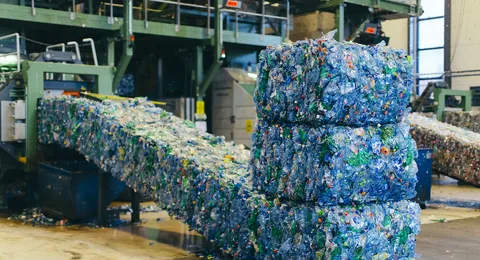
The imperative for robust recycling solutions has never been more pressing in a world grappling with the omnipresent challenge of plastic pollution. Plastic recycling is a beacon of hope, offering a tangible pathway towards mitigating environmental degradation and fostering sustainability.
While systemic change and industrial innovation are pivotal, the role of individual actions should be considered. Here, we delve into ten transformative practices that individuals, communities, and businesses can adopt to propel Plastic Recycling efforts to new heights.
Household Junk Removal | Clearing the Clutter for a Better Tomorrow
1. Master Plastic Identification
Understanding the intricacies of plastic recycling begins with mastering the art of plastic identification. Plastics are categorised into seven groups, each identified by a resin identification code (RIC) ranging from #1 to #7. By familiarising yourself with these codes and their corresponding materials, you can make informed choices and prioritise products with easily recyclable codes, such as PET (#1) and HDPE (#2) plastics.
2. Thorough Cleansing and Drying
The journey of a plastic item through the recycling process begins with ensuring its cleanliness and dryness. Contaminants and moisture can compromise the quality of recycled plastics, leading to subpar products or rendering them unrecyclable altogether.
Therefore, before discarding plastic items into the recycling bin, it is imperative to cleanse them thoroughly to remove any food residue or liquid contents. Additionally, air-dry the plastics to prevent moisture buildup, which can harbour bacteria and mould, ensuring that your recyclables maintain their integrity throughout the recycling process.
3. Redefine Consumption Habits
While recycling is a crucial component of waste management, reducing plastic consumption at the source is equally imperative. Embracing a paradigm shift towards mindful consumption involves redefining our relationship with single-use plastics.
Opt for reusable alternatives such as stainless steel water bottles, cloth grocery bags, and glass food containers to diminish reliance on disposable plastics. By adopting a “refuse, reduce, reuse, recycle” ethos, individuals can actively curb plastic consumption and alleviate the burden on recycling facilities and the environment.
4. Champion Local Recycling Initiatives
Communities play a pivotal role in fostering a recycling and waste reduction culture. Many municipalities offer comprehensive recycling programs, including curbside collection and designated recyclable drop-off locations.
Actively engage with local recycling initiatives by familiarising yourself with recycling guidelines, sorting your recyclables according to specified categories, and advocating for enhanced recycling infrastructure and policies within your community.
5. Educate and Empower
Spreading awareness about plastic recycling is paramount in catalysing the widespread adoption of sustainable practices. Harness the power of education to empower individuals and communities to make informed choices regarding waste management.
Share educational resources, engage in meaningful conversations about environmental stewardship, and lead by example in your everyday choices. By mobilising collective action and fostering a culture of environmental responsibility, we can amplify our impact and effect positive change.
6. Participate in Cleanup Efforts
Combatting plastic pollution extends beyond recycling alone; it necessitates proactive efforts to remove existing waste from our environment. Join local cleanup events or organise community-led initiatives to remove plastic debris from beaches, parks, and waterways.
By directly addressing plastic pollution in our surroundings, we mitigate its adverse effects on wildlife and ecosystems while raising awareness about the importance of responsible waste management.
7. Advocate for Policy Reform
Advocacy is pivotal in driving systemic change and advancing plastic recycling initiatives on a broader scale. Advocate for implementing Extended Producer Responsibility (EPR) policies, which hold manufacturers accountable for the entire lifecycle of their products, including their disposal and recycling.
We can catalyse innovation and accelerate progress towards a circular economy by advocating for policy reform and incentivising producers to prioritise recyclability and invest in recycling infrastructure.
8. Embrace Circular Economy Principles
Transitioning to a circular economy model is fundamental to achieving long-term sustainability goals. Support businesses that embrace circularity by designing durable, repairable, and recyclable products.
Patronise brands that utilise recycled materials in their packaging and manufacturing processes, closing the loop on resource consumption and waste generation. By aligning our consumption habits with circular economy principles, we pave the way for a more regenerative and resource-efficient future.
9. Foster Collaboration and Innovation
Collaboration and innovation are key drivers of progress in plastic recycling. Encourage collaboration among stakeholders, including businesses, government entities, non-profit organizations, and academia, to leverage collective expertise and resources toward shared objectives.
Foster innovation in recycling technologies, materials science, and waste management practices to overcome existing challenges and unlock new opportunities for plastic recycling.
10. Cultivate a Culture of Sustainability
At its core, the journey towards effective plastic recycling is anchored in cultivating a culture of sustainability. Encourage individuals, businesses, and communities to integrate sustainable practices into daily operations.
Celebrate successes, share best practices, and inspire others to join the movement towards a more sustainable future. By fostering a collective commitment to environmental stewardship, we can effect transformative change. And usher in a world where plastic recycling thrives and our planet flourishes.
Conclusion
The quest for effective plastic recycling demands concerted efforts and multifaceted strategies encompassing individual actions, community engagement, policy advocacy. And technological innovation. By embracing transformative practices and fostering a culture of sustainability, we can collectively propel plastic recycling efforts to new heights and pave the way for a more sustainable and resilient future. Together, let us embark on this journey towards a world where plastic recycling is not just an aspiration but a reality.


